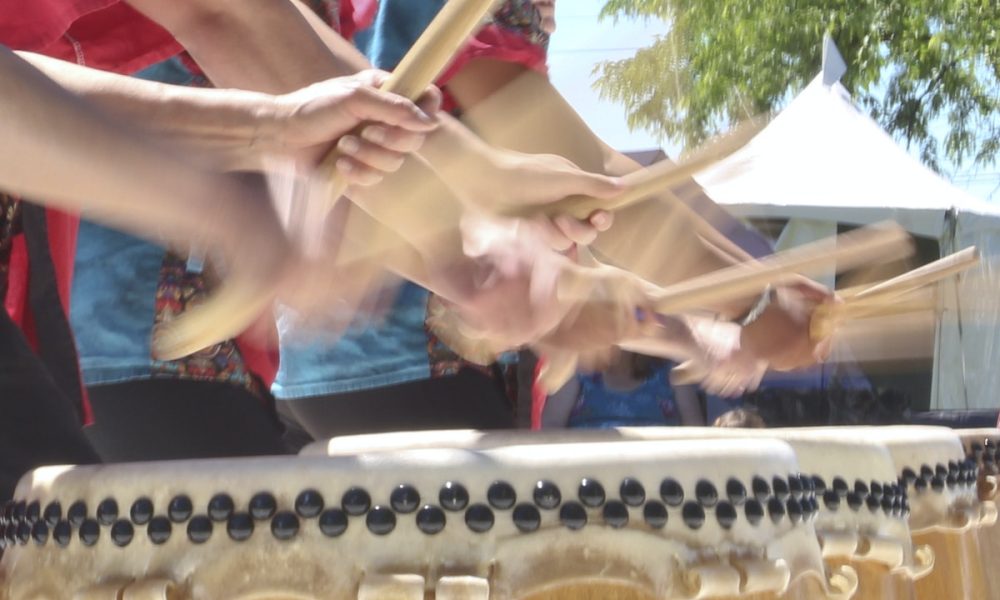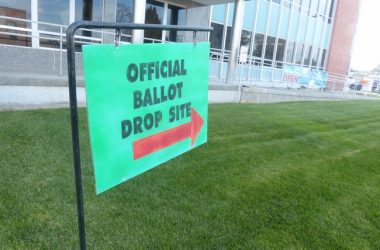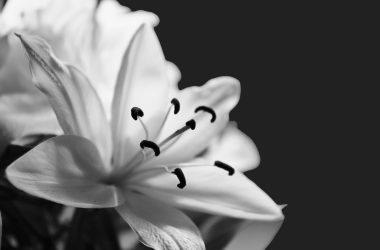 Kawa Taiko, a traditional Japanese drumming group, performed at the recent Global Village Festival in Ontario. (Malheur Enterprise / Jayme Fraser)
Kawa Taiko, a traditional Japanese drumming group, performed at the recent Global Village Festival in Ontario. (Malheur Enterprise / Jayme Fraser)
ONTARIO – There is one big change coming for the annual Obon celebration this year.
The event, a prominent fixture of the Ontario community, is usually held outdoors but this year the event will be at Four Rivers Cultural Center at 5 p.m. Saturday.
“We thought, let’s move it to the cultural center – that way we have a big area and it will be cool,” said Mary Ann Shimojima, a longtime member of Idaho- Oregon Buddhist Temple in Ontario.
The Obon festival, sponsored by the temple, spotlights Japanese culture with demonstrations, dance and food.
“We have all kinds of things for people to do,” said Shimojima.
Obon is a Buddhist way to remember ancestors. Traditionally, it is believed that each year during Obon the spirts of one’s ancestors return and visit. During the celebration, lanterns are placed in front of a house to guide the spirits of ancestors, traditional dances are performed, graves are visited and offerings of food are made at alters in homes or in temples.
“We remember all the people who have passed away before us. They have paved the way for us to have a good life here,” said Shimojima.
A variety of traditional Japanese foods are offered at the festival, including Mafa chicken, Onigiri rice balls, Inari sushi, noodles, shishkabobs, and pies and cakes.
A taiko drum demonstration kicks off at 6 p.m. and an aikido –Japanese martial arts – display is at 6:30 p.m., along with a kimono show at 7 p.m.
“Some kimonos are really expensive and there will be a bunch of different ones to show people,” said Shimojima.
The traditional Obon dance starts at 7:30 p.m. and goes to 9:30 p.m. The Obon dance is a precise exercise where dancers perform the same steps simultaneously while moving in a circle.
While the Obon Festival will be held at the cultural center, the heart of the celebration revolves around the Buddhist Temple at 286 S.E. 4th St.
The temple traces its origins to World War II. After the U.S. entered the war, nearly 120,000 Japanese-Americans – many of them citizens – were confined in detention camps across the western U.S. But the war created a farm labor shortage and, after appeals from farmers, the U.S. government gave Japanese-Americans in the detention camps a choice: They could stay in the camps or work on farms. A large number of Japanese-Americans accepted the government offer and came to the Ontario area. After the war, some of the Japanese-Americans in the area stayed. Many of them were active Buddhists; they formed a congregation and built the temple. A center of Japanese culture for more than seven decades, the Idaho-Oregon Buddhist Temple was dedicated in April 1947.
Shimojima said the festival will be a lot of fun.
“Everybody is welcome and it is a good way to learn different cultures and experience a lot of Japanese and Buddhist traditions,” said Shimojima.
Reporter Pat Caldwell: [email protected] or 541-473-3377.




